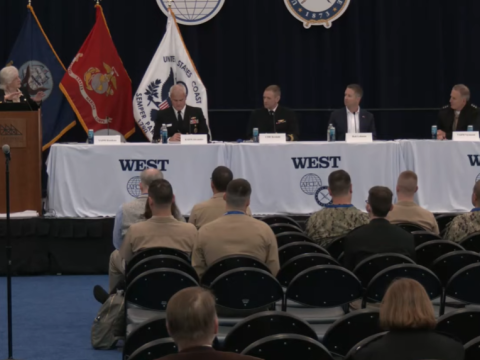Plan for Potential Degraded Operations
The cyber domain consists of servers, undersea cables, satellite and wireless networks that link global communications. This allows accelerated technical change that we can use to our advantage, stated Rear Adm. Matthew J. Carter, USN, deputy commander, U.S. Pacific Fleet. However, the low-cost entry to access the same technology the military uses leaves open the possibility for embedded attacks on the technology we depend on, he added while speaking at AFCEA TechNet Asia-Pacific.
The region has experienced peace and prosperity for decades due to a rules-based international system that has lifted many out of poverty and benefits many today, Adm. Carter said. In the maritime dominated Indo-Asia-Pacific region, the U.S. Pacific Fleet is the primary guarantor of security. The fleet has to be “where it matters, when it matters, with what matters, and rely on information and cyber capabilities to meet that challenge," the admiral said.
The challenge today is how best to process raw data into actionable intelligence that operators can use to make decisions. “Information continues to grow and outpace our ability to process it," he emphasized.
Adversaries today have a vote in setting conditions, and so leaders need to recognize that the Pacific Fleet might have to operate in a degraded environment. The military needs to be resilient to operate in that environment until full capability can be restored, the admiral stated. It is important to be able to keep information flowing up and down the chain of command and, more importantly, in the midst of conflict.
There is no illusion. The threat is real and will be larger during conflict. Cyber dominance, tactics, techniques, procedures and governing policy must be agile enough to respond, Adm. Carter concluded.




Comments